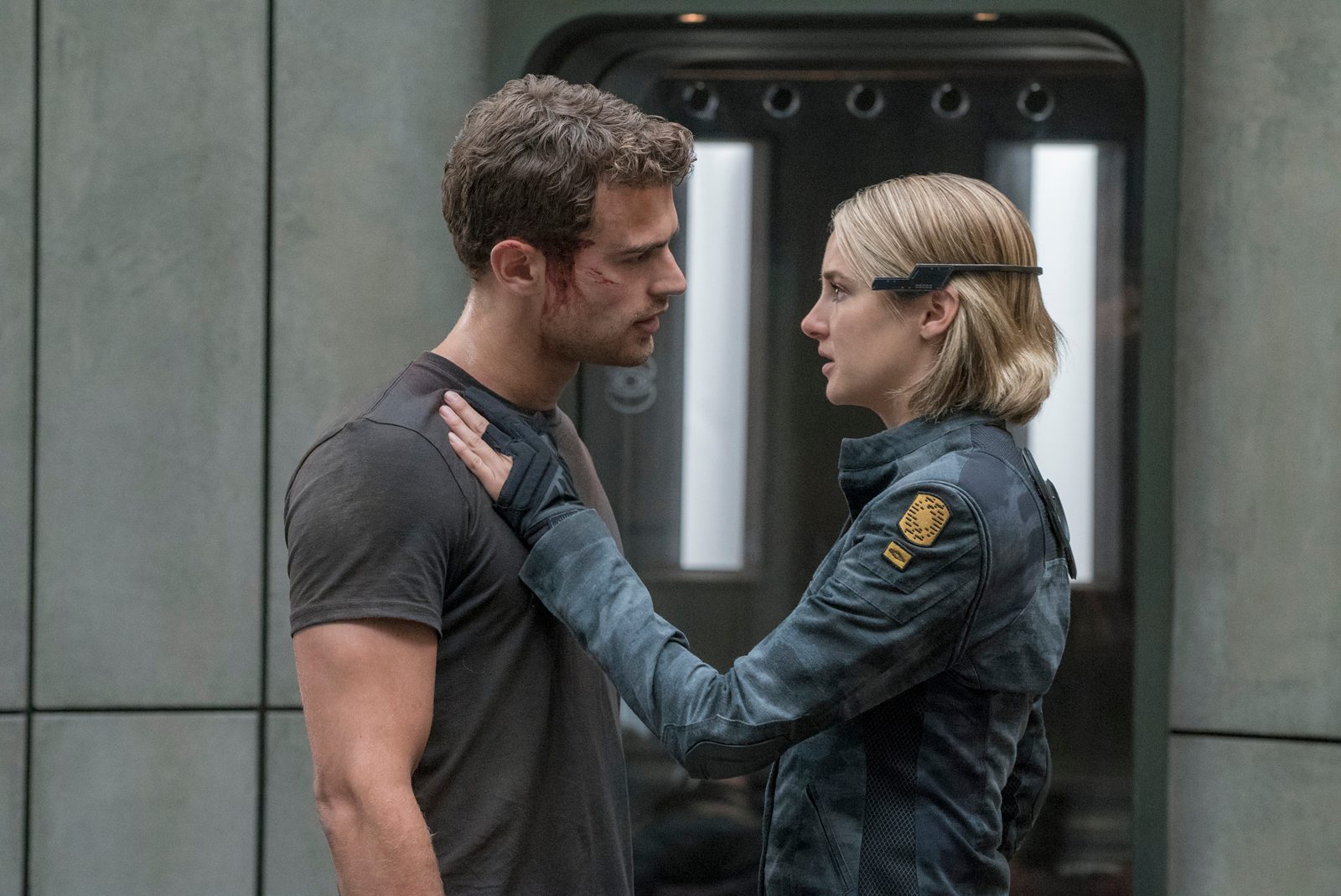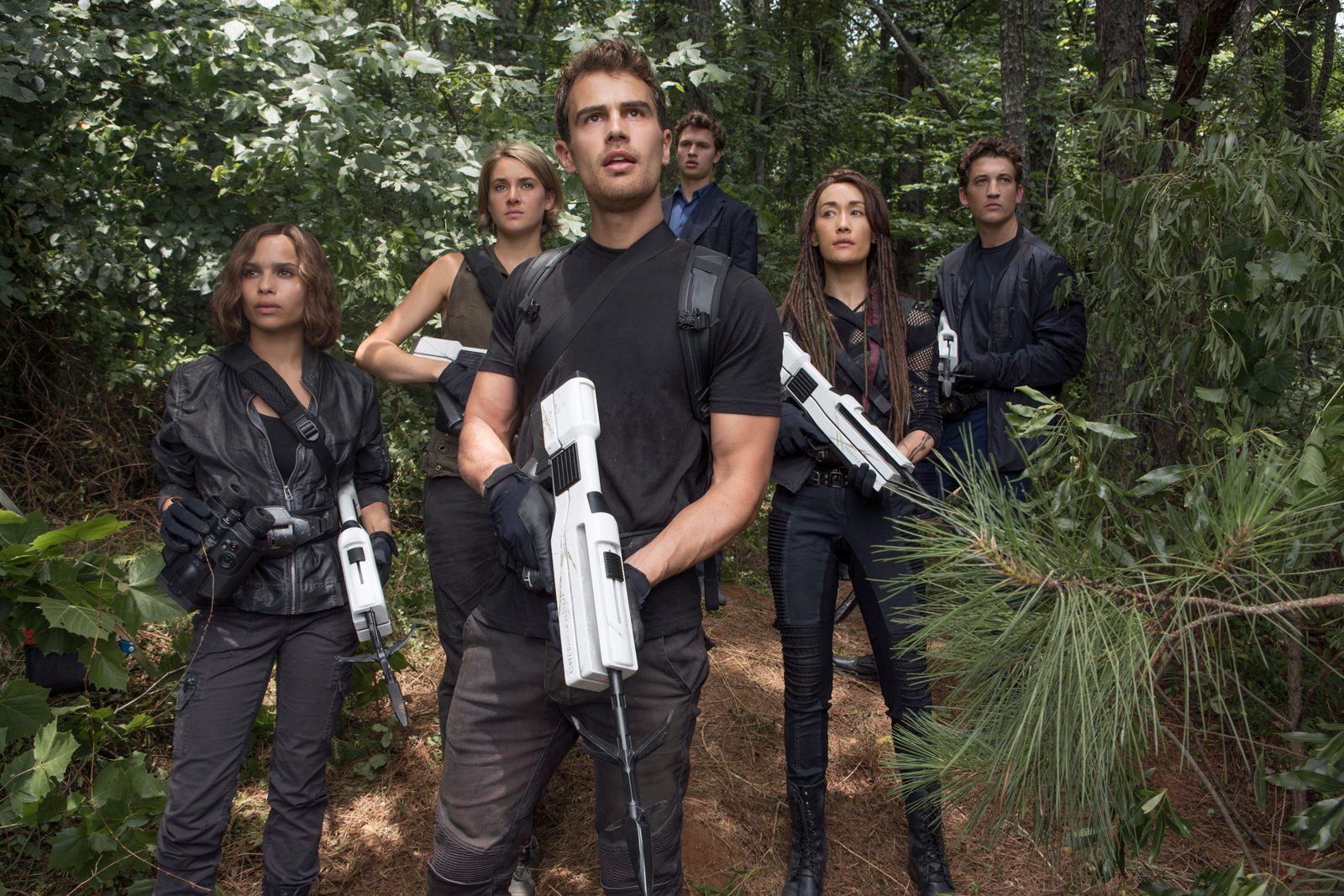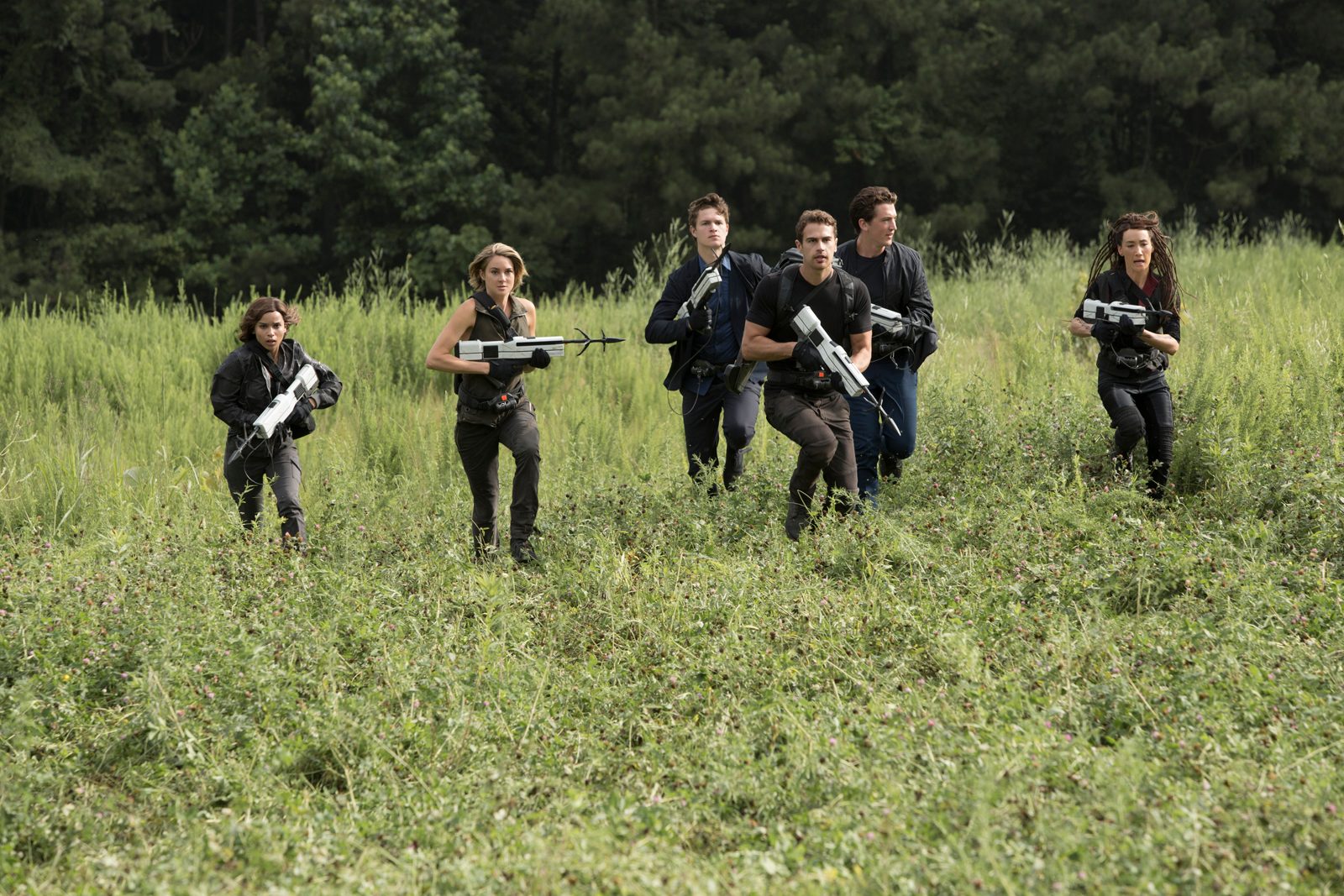SUMMARY
This is AI generated summarization, which may have errors. For context, always refer to the full article.

In the end of the woefully bland Insurgent (2015), Tris (Shailene Woodley) and her company of brooding youngsters have just dismantled the caste system of post-apocalyptic Chicago.
Jeanine (Kate Winslet), the mastermind of the system that divided the populace using their primary traits, had just been executed by her nemesis Evelyn (Naomi Watts), a rather wishy-washy leader who is all about pleasing the angry mob she created during the rebellion.
Another continuation

Allegiant begins exactly where the previous film ended.
Tris is still with her company of brooding youngsters who want to leave walled Chicago. Evelyn, who has been executing Jeanine’s collaborators to please her own angry constituents, has decided to shut the entire city in. Jeanine’s inhumane treatment of her prisoners has caused a rift with former allies, resulting in a war within the walled metropolis.
Of course, Tris and her friends will find a way out, only to find out that outside Chicago is a vast wasteland where a pocket community of futuristic people have been observing them right from the start.
So Allegiant is basically like the first two movies of The Divergent series, albeit with higher stakes. Outside the clutches of the ludicrous system that novelist Veronica Roth has conceived for her popular book franchise, the characters are now burdened with the same conflict outside Chicago. As it turns out, the futuristic world, headed by a demure bureaucrat (Jeff Daniels), still stratifies humanity, only this time, they aren’t divided by personality but by genetic purity.
Bigger canvas
Director Robert Schwentke, who inherited the series from Neil Burger, has a bigger canvas to fill. Burger’s mannered approach to Roth’s garish allegory gave the first film a certain dignified quality that is quite rare in the genre.
Schwentke, however, shifted the tone of the series, making it more conventional without necessarily ornamenting the series with astounding spectacles. Insurgent was vapid and near incomprehensible with its confused take on the juvenile philosophy that veiled the whole adventure.
Anyway, as soon as Allegiant’s sulking heroes and heroines escape ruined Chicago, the film immediately lets out a great gasp of air, having finally been released from the redundancy of abandoned skyscrapers and unkempt streets. This could have been Schwentke’s opportunity to think outside the box, to make his mark in a series that is feels like a poor imitation of all the other poor imitations that Hollywood has been churning recently.

Outside, everything is red and noxious, almost like the suffocating desert of George Miller’s Mad Max: Fury Road with a bad case of acne. It almost feels like the series is treading towards a more mature and sarcastic direction, where the series’ kids who are always right are to finally get their comeuppance and admit that their adults are correct all along. There is no hope outside the walls.
Sadly, the initial awe is immediately replaced by the tedium of experiencing everything repeat itself, only this time, with more obvious computer-generated graphics. The bare crimson landscapes feel fake and soulless, as opposed to having the imprint of seeing humanity die. The film’s visuals never really graduate from being the cinematic equivalent of a kindergarten’s show-and-tell class.
Dumb and dumber

The green-screen visuals are just padding to a grossly deficient and redundant narrative that Schwentke barely improves on.
His heroes are dumb and reactive. His villains are even dumber. The film is a medley of characters squeezing out of harsh scenarios either by coincidence or by the sheer stupidity of adults who should know better.
In other words, the film severely lacks urgency, not only because of its plodding pace, but because the audience can always count on idiocy and senselessness to save the day. – Rappler.com
 Francis Joseph Cruz litigates for a living and writes about cinema for fun. The first Filipino movie he saw in the theaters was Carlo J. Caparas’ ‘Tirad Pass.’ Since then, he’s been on a mission to find better memories with Philippine cinema. Profile photo by Fatcat Studios
Francis Joseph Cruz litigates for a living and writes about cinema for fun. The first Filipino movie he saw in the theaters was Carlo J. Caparas’ ‘Tirad Pass.’ Since then, he’s been on a mission to find better memories with Philippine cinema. Profile photo by Fatcat Studios
Add a comment
How does this make you feel?
There are no comments yet. Add your comment to start the conversation.